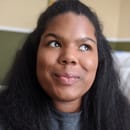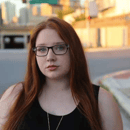I didn’t realize how prejudice I was towards my own racial group until I moved to a new high school during my junior year. I found myself taken aback by the disturbing thoughts and reactions I had when I found out what school I would be attending, not wanting to be associated with the negative connotations the school had. My new school was known to be the “gang school”; every day there would be new stories of lunch-stopping fights among the kids and school suspensions that seemed to last for weeks.
The school is relatively new, being built during the early 2000s, but established right in the middle of the “gang era” of my city. Because of the new school, zones had to be rearranged, which meant that my grandma’s house in the suburbs was now assigned to it, no longer being a part of the “good” school zone. Every time I visited her, I would always hear stories about a new fight breaking out at the school, instilling disdain and prejudice towards an environment I had no personal experience with. But as mysterious as the universe works, attending that school was where I would confront years of self-hate, internal prejudice, and begin the rollercoaster of my identity crisis.
I’ve always grown up in predominantly white neighborhoods, thus attending PWIs (Predominantly White Institutions). I think in the back of my mind as a kid I knew I was black but didn’t fully understand what it meant. I was always described as a girl who walks to the beat of her own drum, but I often found my behaviors and interests reflecting my white friends. I listened to the same teeny-bop music, had a crush on Zac Efron over Corbin Bleu (man, was I blind), and played games that, looking back, were made to exclude the minority. I said I’ve always felt included with my friends, but deep down I knew I was always going to be the third-wheel, the outsider, the crayon that no one wants to use.
It was the little things that made me realize I was more different than those around me; the way all the kids would compare their tans after a summer break, having a competition to see who the darkest one was, knowing I would win that argument every time; being in dance class and not knowing what shade of red lipstick would work best for my darker complexion because I needed to stand out more during a recital, as if my black ass wouldn’t be a stark enough difference in the sea of white; or even during the sleepovers when I would be the only one on the couch while everyone else would be on the floor giggly about whatever, styling each others hair, being the one left out because my hair was “too difficult” to style in dreads.
I started to think something was wrong with me; why did my “friends” ask multiple times if I really washed or brushed my hair? Why did everyone look to me during history class when we talked about slavery? Why were all of my crushes white boys who I knew would never give me the time of day because I didn’t fit their “dream girl” fantasy? I think subconsciously I started to assimilate to a culture that didn’t accept me for my real self. I started to self-identify as an “oreo,” after hearing it in a Bring It On movie, not knowing the racist implications it had; I felt “white” even though I may look “black” on the outside. Looking back, it makes me sad that I ever had to feel like this and hate that I’m not the only black kid, hell, child of color, that felt this way.
Society didn’t reflect what I saw in the mirror. Instead, it showed me what I should look like, how I should act, and what “beauty” really looks like. My celebrity crushes were all conventionally attractive white boys, and every time I gushed about one, I could never understand as to why my mom would always push me to love a black/brown boy, now realizing that she wanted me to see the beauty in everyone, not just the white beauty standard I was conditioned to love.
I remember one time I was putting one lotion and I thought it would be funny if I slathered it all over my body so I could look “white”. Running into the living room where my mom was, I exclaimed, “Hey look, mom! I’m white now!,” arms and legs spread in a proud starfish stance, with a bright smile on my face, chuckling slightly. What I didn’t see was the look of disappointment and deep pain behind my mother’s eyes as she gingerly wiped the glob of lotion off my body and told me to be proud of my salted caramel skin. As a 7-year old, I could understand why she didn’t laugh along with me, now knowing how detrimental it was to pretend to be a whole other race just to love myself.
Being the quiet, quirky black kid in white schools never taught me to embrace my skin. It taught me to assimilate and laugh along to high-key racist comments that my classmates made to fit in. It taught me not to raise my hand in class, even when I knew I was right, fearing that my intelligence would be met with ridicule and further ostracize me from my class. It taught me to constantly explain to my classmates that I didn’t know how to play basketball and that I hated hip-hop. It taught me to love an environment that didn’t love me back.
So when I found out that I was moving to a school that had a reputation of being the “bad school” I was confronted with thoughts that I hate that I ever had in the first place. The school population was predominantly black and Hispanic kids, and if I learned anything from any of the movies I watch as a kid, the running theme was always that black and brown kids were “trouble”, “thugs”, and “bad influences”. As a result, I internalized that hatred and even though I watched a variety of black tv staples such as “Fresh Prince of Bel-Air”, “My Wife and Kids”, “The Proud Family” or the legendary “Cinderella” produced by Whitney Houston herself, white media successfully drowned their positive images and messages, leading to years of self-hate and insecurity.
I protested going to that school, pleading to go to the white school down the road. Why was I so insistent on going to a place that didn’t even want me? The better question is; why was I so persistent on not going to the minority school? Was it because I didn’t want to associate myself with a “troubled school”? Was it because I was secretly and irrationally afraid of being assaulted? Or was it because I secretly thought I was better than them because deep down I never actually thought of myself as black? Writing this now not only disgusts me but makes me sad. I was doing exactly was I was conditioned to do; judge people based on their skin, without getting a chance to know them.
Little did I know that this school was truly the better place to attend because I finally had teachers that cared about students’ success. It took me 16 years to make my first black friend, Kiana, feeling relief as we bonded over things that only black girls could bond over; stories about the love-hate relationship we have about doing our hair, funny antics we had with our siblings and similar family holiday traditions. I never felt this good about myself ever and I had to confront the prejudices about my own race instilled by the media to even begin to love myself.
I wish things could have been different growing up. Being born in an off generation within my family prevented me from really bonding with my older relatives; I always stood awkwardly beside my mother during family events, watching the adults and teenagers banter with each other. I have two immediate first cousins but never got to see them often since they lived in Seattle. I wish that I was able to see the difference in my skin and learned to love it as much as I do now. I find myself lacking the African American vernacular, only being able to understand it, never fully being able to properly speak it without sounding out of place. I found it hard to fully connect with other black students because I didn’t always know the lyrics to the new song everybody was listening to or the hot new artist because my preferred genre of music is Alternative/Indie or Country.
Even though I’ve learned to love my blackness fully and proudly, the years I spent “acting white” disabled me in my own community. It disabled the ability to connect with my black peers once I moved schools, even now in college. It disabled me from connecting to a whole world of black artists, creators, actors, and professionals. It disabled me from seeing the versatility of what beauty really is, not conforming to the homogenous standard that we’re oh-so used to, but breaking barriers and embracing the individuality of every beautiful shade people come in.
It took me years for my blinders to come off and realize how deep my prejudice ran. I stopped blaming myself for not seeing it earlier because it’s not my fault that I didn’t know what I couldn’t see. I guess right now I’m in a place in my life where I’m trying to catch-up on what I’ve missed but also trying to connect with others who share similar experiences. You’d be surprised how many people go through an identity crisis in their early 20s. The hard part is learning how to accept your differences and strengths, embracing your individuality in this world. Don’t worry, I’m right there with you.



